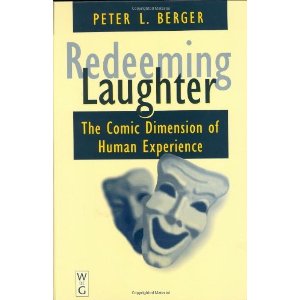Mental-illness sufferers often avoid therapists because the stigma around these “shrinks” is as thick as that of the disease. The author is here to explain why you shouldn’t fear them.
Mood music for this post: “Just Another Psycho” by Motley Crue:
[youtube=http://www.youtube.com/watch?v=Ko23M-4AAbg&hl=en_US&fs=1&]
It’s a funny thing when I talk to people suffering from depression, addiction and other troubles of the mind. Folks seem more comfortable about the idea of pills than in seeing a therapist. After all, they’re just crazy “shrinks” in white coats obsessed with how your childhood nightmares compromised your adult sex life, right?
Since I rely on a therapist and medication as two of MANY tools in my recovery, I’m going to take a crack at removing the shrink stigma for you.
I’ve been to many therapists in my life. I was sent to one at Children’s Hospital in Boston as a kid to talk through the emotions of being sick with Chron’s Disease all the time. That same therapist also tried to help me and my siblings process the bitter aftermath of our parents’ divorce in 1980.
As a teenager, I went to another therapist to discuss my brother’s death and my difficulty in getting along with my stepmother (a wonderful, wonderful woman who I love dearly, by the way. But as a kid I didn’t get along with her).
That guy was a piece of work. He had a thick French accent and wanted to know if I found my stepmother attractive. From the moment he asked that question, I was done with him, and spent the rest of the appointment being belligerent.
That put me off going to a therapist for a long time. I started going to one again in 2004, when I found I could no longer function in society without untangling the barbed wire in my head. But I hesitated for a couple years before pressing on.
The therapist I started going to specialized in dealing with disturbed children and teenagers. That was perfect, because in a lot of ways I was still a troubled kid.
She never told me what to do, never told me how I’m supposed to interpret my disorder against my past. She asked a lot of questions and had me do the work of sorting it out. That, ladies and gentlemen, is what a good therapist does. They ask questions to get your brain churning, dredging up experiences that sat at the back of the mind like mud on the ocean floor. That’s how you begin to deal with how you got to the point of dysfunction.
She moved to Florida a year in and I started going to a fellow who worked from his house. I would explain my binge eating habits to him, specifically how I would down $30 worth of McDonald’s between work and home.
“You should stock your car with healthy foods like fruit, so if you’re hungry you can eat those things instead,” he told me.
That was the end of that. He didn’t get it. When an addict craves the junk, the healthy food around you doesn’t stand a chance. The compulsion is specifically toward eating the junk. He should have understood. He didn’t. Game over.
The therapist I see now is a God-send. He was the first therapist to help me understand the science behind mental illness and the way an inbalance in brain chemistry can mess with your thought traffic. He also provided me with quite an education on how anti-depressants work. Yes, friends, there’s a science to it. Certain drugs are designed to shore up the brain chemicals that, when depleted, lead to bi-polar behavior. Other meds are specifically geared toward anxiety control. In my case, I needed the drug that best addressed obsessive-compulsive behavior. For me, that meant Prozac.
That’s not to say I blindly obey his every suggestion. He specializes in stress reduction and is big on yoga and eliminating coffee from the daily diet. Those are two deal breakers for me. Yoga bores the dickens out of me. If you’ve been following this blog all along, I need not explain the coffee part.
I also find it fun to push his buttons once in awhile. I’ll show up at his office with a huge cup of Starbucks. “Oh, I see you’ve brought drugs with you,” he’ll say.
Thing is, he’s probably right about the coffee. But I’ve given up a lot of other things for the sake of mental health. I’m simply not putting the coffee down right now.
I think part of this is about testing him, too. I can’t help but push the buttons sometimes just to see what I can get away with.
But on balance, it’s a productive relationship that has helped me to find a lot of peace and order in my life. I thank him for that.
He kind of reminds me of Dr. Keyworth, the shrink who counseled Josh Lyman and President Bartlet on “The West Wing.” He took their crap with a straight face, not the least bit concerned that these were powerful, intimidating people.
The main point of this post is this:
There are good therapists and not-so-good therapists, just like there are good and not-so-good primary care doctors; just like there are good cops and bad cops.
But if you feel like you need to talk to someone objective and you hold back for fear of being in the same room as a quack, well, then you’ll never know what you could have accomplished.
I chose to talk to a professional despite my deepest reservations. I’m grateful that I did.









